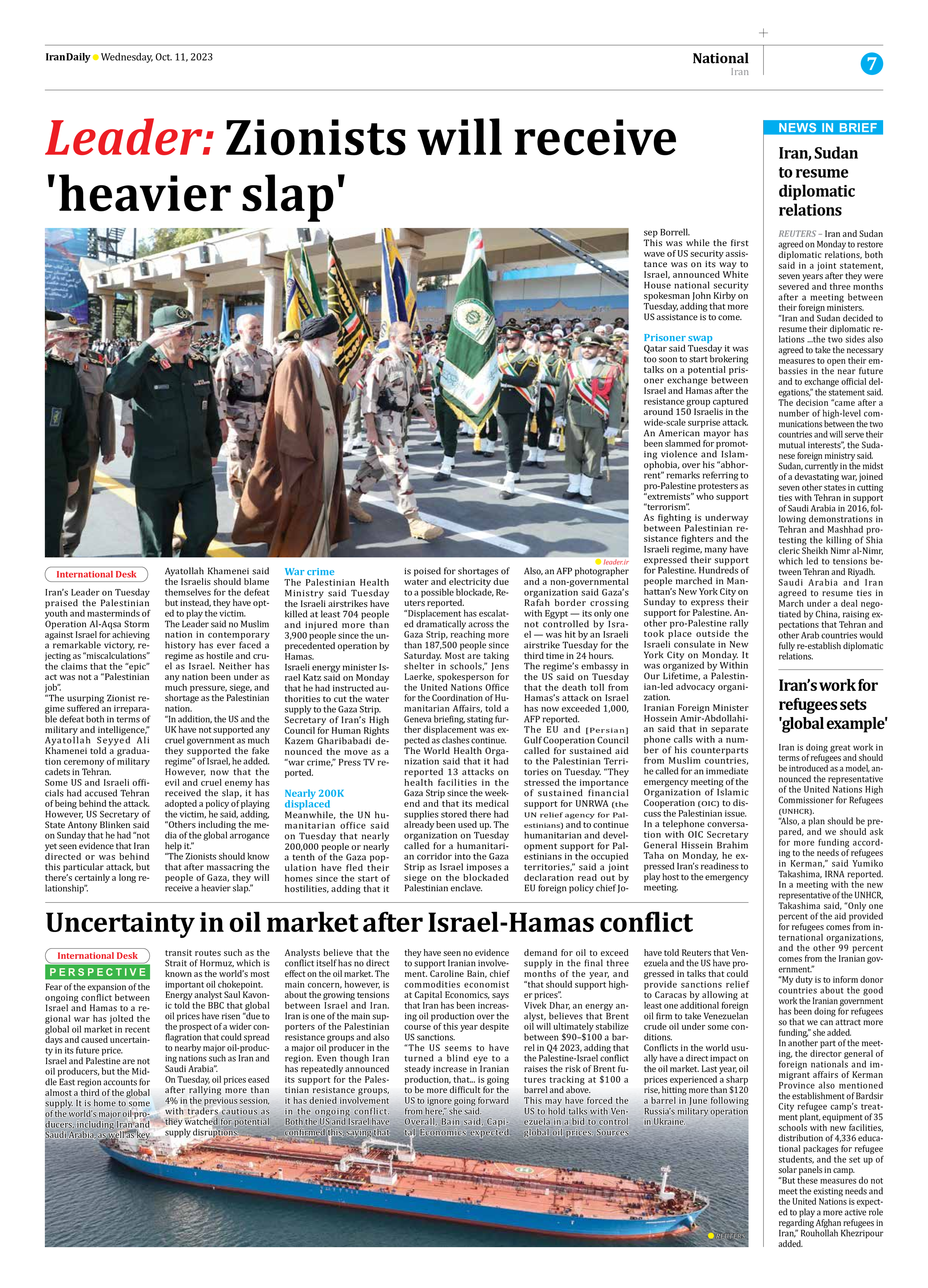
News in Brief
Iran, Sudan to resume diplomatic relations
REUTERS – Iran and Sudan agreed on Monday to restore diplomatic relations, both said in a joint statement, seven years after they were severed and three months after a meeting between their foreign ministers.
“Iran and Sudan decided to resume their diplomatic relations ...the two sides also agreed to take the necessary measures to open their embassies in the near future and to exchange official delegations,” the statement said. The decision “came after a number of high-level communications between the two countries and will serve their mutual interests”, the Sudanese foreign ministry said.
Sudan, currently in the midst of a devastating war, joined seven other states in cutting ties with Tehran in support of Saudi Arabia in 2016, following demonstrations in Tehran and Mashhad protesting the killing of Shia cleric Sheikh Nimr al-Nimr, which led to tensions between Tehran and Riyadh.
Saudi Arabia and Iran agreed to resume ties in March under a deal negotiated by China, raising expectations that Tehran and other Arab countries would fully re-establish diplomatic relations.
Iran’s work for refugees sets 'global example'
Iran is doing great work in terms of refugees and should be introduced as a model, announced the representative of the United Nations High Commissioner for Refugees (UNHCR).
“Also, a plan should be prepared, and we should ask for more funding according to the needs of refugees in Kerman,” said Yumiko Takashima, IRNA reported. In a meeting with the new representative of the UNHCR, Takashima said, “Only one percent of the aid provided for refugees comes from international organizations, and the other 99 percent comes from the Iranian government.”
“My duty is to inform donor countries about the good work the Iranian government has been doing for refugees so that we can attract more funding,” she added.
In another part of the meeting, the director general of foreign nationals and immigrant affairs of Kerman Province also mentioned the establishment of Bardsir City refugee camp’s treatment plant, equipment of 35 schools with new facilities, distribution of 4,336 educational packages for refugee students, and the set up of solar panels in camp.
“But these measures do not meet the existing needs and the United Nations is expected to play a more active role regarding Afghan refugees in Iran,” Rouhollah Khezripour added.







